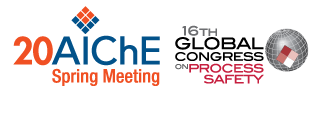

CCPS 2020 Abstract
Presenters: Chelsea Miller, Erik Schwarze
Back-up Presenters: Sahika Korkmaz, Abbe Barr
Abstract:
This presentation will share Chevron’s operational learning journey to understand the blue line - or in other words, to understand how work actually happens. Why do we want to learn about how work actually happens? When we understand the blue line, we’re able to strengthen our safeguards and increase our capacity to fail safely. Fatality prevention starts with ensuring safeguards are in place and functioning effectively.
What is operational learning? Operational learning provides for continuous feedback loops that allow for constant learning and improving. Its focus is on learning about the complexity and normal variability of work, the adaptive nature of workers attempting to complete their tasks and how failure and success really occur in the field where work happens. Chevron has formalized and standardized a suite of safeguard verification tools in each phase of work. There are many avenues for learning. Both successes and unexpected outcomes provide opportunities to learn, improve and strengthen safeguards. Learnings can be lost overtime if only held by individuals; therefore, operational knowledge must be captured easily and effectively and swiftly embedded into our systems, technologies and processes.
This presentation will discuss how operational learning takes many forms, with a variety of different tools. Learning requires processes that support both proactive and systematic approaches and integration into operations with the specific intent to strengthen safeguards and mitigate risk.
Business Impact:
One of the newest approaches to operational learning that Chevron has taken is through learning teams. Learning teams are a method of improving work processes by engaging the people closest to the work. This often results in better improvements and solutions to issues; and, increasingly better commitment and accountability from the workforce. Learning teams are less formal than most incident investigation techniques and focus on learning and improvement rather than on identifying errors and mistakes. This can lead to more honest conversations. Learning teams incorporate human & organizational performance by identifying error traps and latent conditions, and can be useful for learning from both normal work and events.
Through its journey, Chevron has found that for optimal learning team deployment results, the organization should first focus on gaining broad acceptance of human & organizational performance concepts. The next step is to build the enthusiastic support of business leaders by equipping them. For example, Chevron conducts awareness sessions with leaders to ensure they understand what a learning team is and how best to support the concept. Leaders encourage the team to focus on learning, rather than fixing. Leaders establish an environment of trust and open communication. Finally, leaders must understand how important it is to be open to hearing, particularly when it conflicts with their views. It’s when those conflicts are exposed that deep learning can occur.
Other tools in Chevron’s operational learning toolbox include safeguard verification discussions in the various phases of work: design, pre-job, job execution and post-job. Chevron employs different tools in each phase of work to be able to better facilitate a rich safeguard verification discussion, i.e. start of shift meeting, JSA, hazard analysis, joint job walks, work permit, start work checks, etc.
Challenges:
There two significant challenges when a business unit shifts its focus to operational learning:
1) Leaders have to be ready to hear the truth and thus foster an environment of openness and trust to enable sharing learnings, issues, gaps and vulnerabilities.
2) If leaders ask its workforce to address vulnerabilities in work and in safeguards, the business has to be equipped to quickly and effectively capture those learnings and improvement suggestions, and be able to respond and react quickly and effectively.
Key Takeaways for Audience:
The overarching goal of operational learning is to build a culture of safeguard verification. Such a culture is in an endless pursuit to understand how normal work gets done in the field and how to verify safeguards. This requires a shift in thinking in how we engage, ask questions and respond. When the business focuses on operational learning, we can more easily identify and fix the vulnerabilities in our safeguards.
Keywords:
Human & Organizational Performance
Operational Learning
Learning
Learning Teams
Safeguard Verification
Safeguard
Culture
Presenter(s)
Language
Pricing
Individuals
| AIChE Member Credits | 0.5 |
| AIChE Pro Members | $19.00 |
| Employees of CCPS Member Companies | Free |
| AIChE Graduate Student Members | Free |
| AIChE Undergraduate Student Members | Free |
| AIChE Explorer Members | $29.00 |
| Non-Members | $29.00 |
